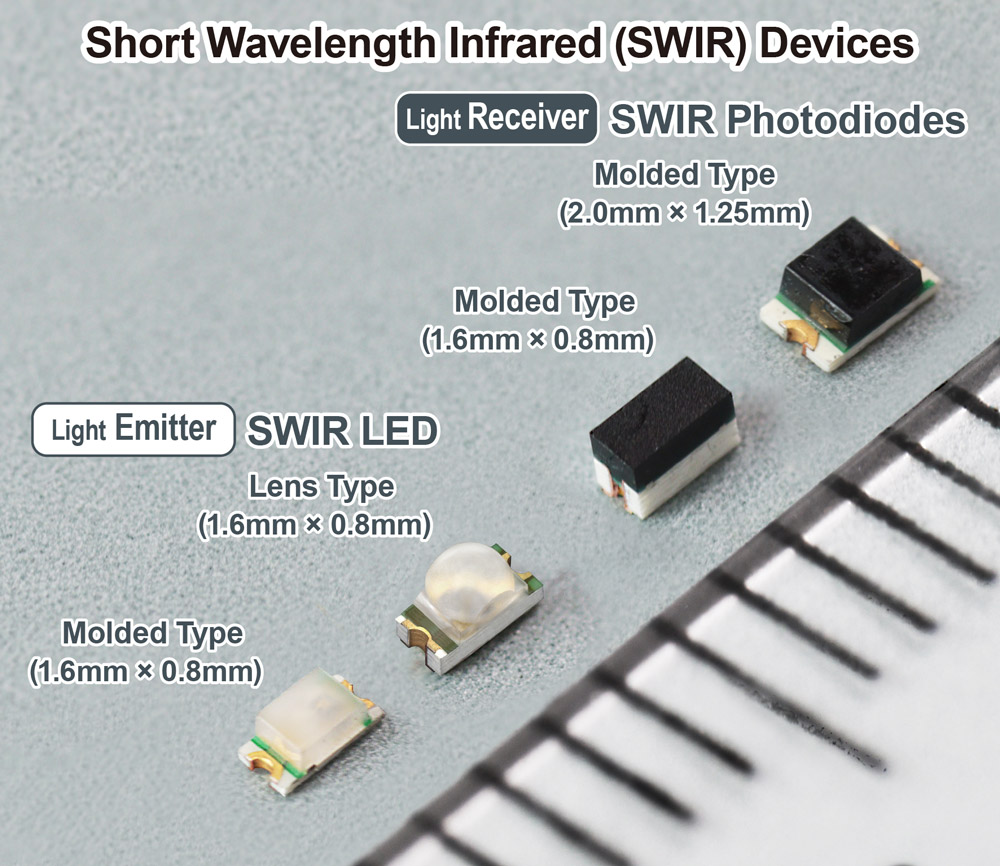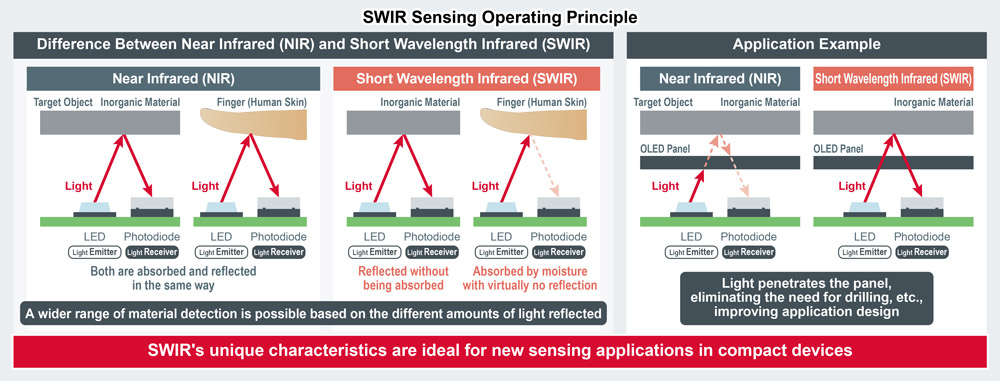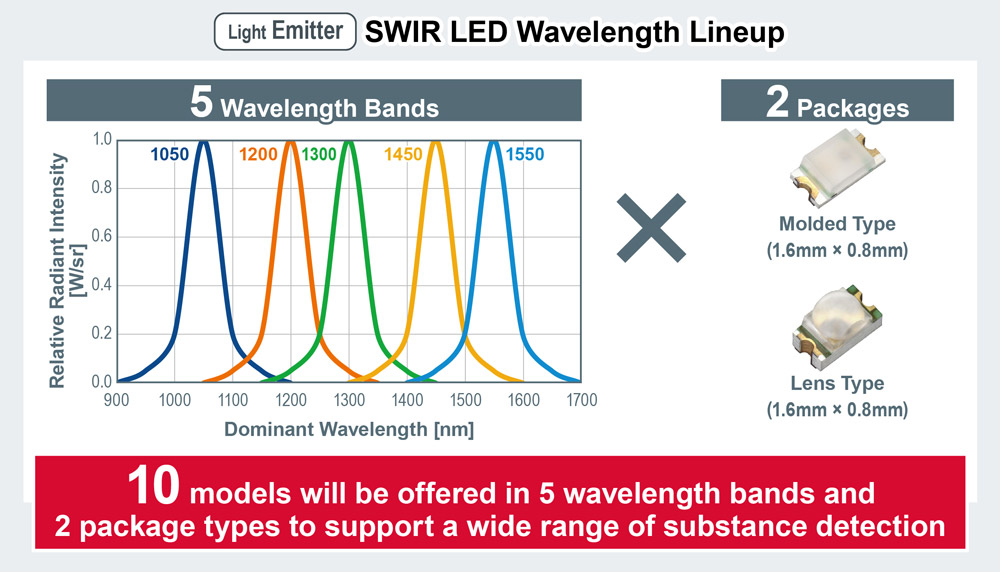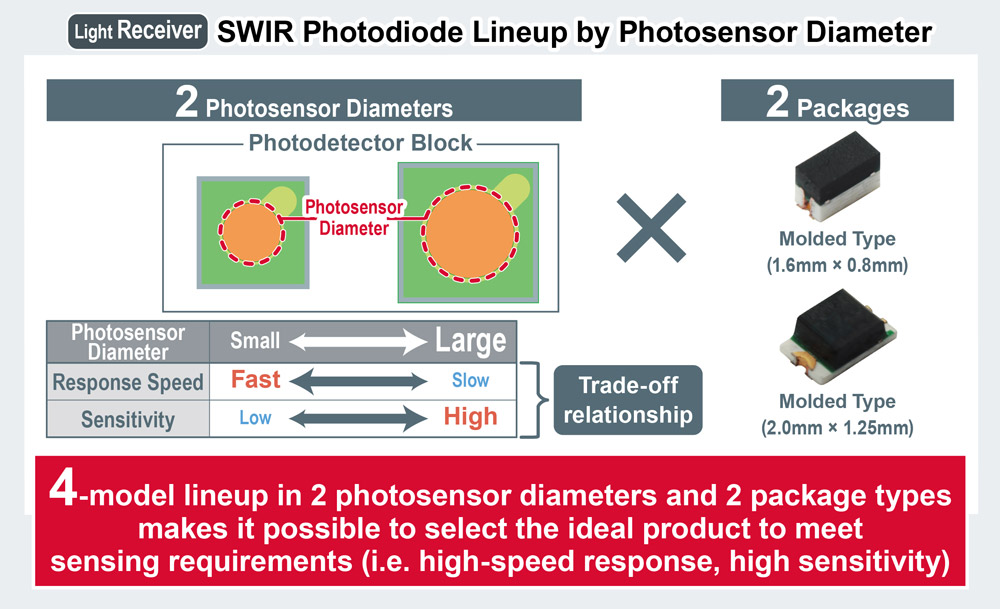News: LEDs
21 April 2023
ROHM producing SWIR devices in smallest size class for sensing applications in portable and wearable devices
Japan’s ROHM has established mass-production technology for short-wavelength infrared (SWIR) devices in the industry’s smallest class 1608-size (1.6mm x 0.8mm) for portable/wearable/hearable devices requiring material detection.

SWIR is characterized by a longer wavelength than near-infrared (NIR), providing greater permeability through different materials while being less susceptible to sunlight, smoke and other particulate matter. The technology is hence expected to expand the range of sensing substances such as water/gas and glucose. However, until now most SWIR devices have been through-hole package types for relatively large applications such as communication equipment and industrial analyzers. There are therefore very few surface-mount products on the market suitable for compact applications.
As SWIR is used to detect the presence of substances and their constituent components by taking advantage of characteristics of water, ice, gases etc that absorb specific wavelengths, target applications include light sources for blood oxygen saturation and blood glucose measurement devices in the medical field and measuring the water and sugar content of fruit and vegetables in the food industry. Adoption is also anticipated in sensing applications through organic light-emitting diode (OLED) panels in portable devices, and wearable/hearable devices to add health monitoring and other novel functions.
In response, ROHM has established mass-production technology for compact 1608-size surface-mount SWIR products (light emitting/receiving) by leveraging manufacturing technology cultivated through the mass production of compound semiconductors such as visible and near-infrared LEDs. For the light-emitting side, a lineup of ten LEDs is planned in varying package shapes (molded/lens) and wavelengths (1050–1550nm). On the light receiving side, four photodiode models will be offered in different packages (1608-size/20125-size (2.0mm x 1.25mm)) and photodetector block size.

Samples of SWIR products (light emitters/receivers) based on this technology have been available since March. Going forward, ROHM aims to pursue new areas for sensing by supporting a wider range of material detection in compact applications.
SWIR devices
SWIR devices (light emitters/receivers) are now available in a class-leading compact surface-mount package. The combination of small light-receiving and -emitting products contributes not only to space savings by reducing mounting area but also opens up new possibilities for sensing in compact applications.
- SWIR LED (light-emitting side)
SWIR LEDs will be offered in five wavelengths (1050nm, 1200nm, 1300nm, 1450nm and 1550nm) to match the characteristics of different materials, and two types of surface-mount packages – a general molded type and a lens variant featuring a narrower emission directivity along with higher radiation intensity. This will bring the total to ten models in various combinations, contributing to a wide range of material detection, including the presence and constituent analysis of substances such as water, gases and glucose.

- SWIR photodiode (light-receiving side)
SWIR photodiodes are characterized by a trade-off relationship in which the smaller the light-detection area the faster the response speed, but a larger area provides greater sensitivity. ROHM hence plans to offer four models in two light-receiving diameter sizes and two package types. This will make it possible to select the ideal product based on application requirements, such as the need for faster response or sensing in low light environments, says ROHM.










